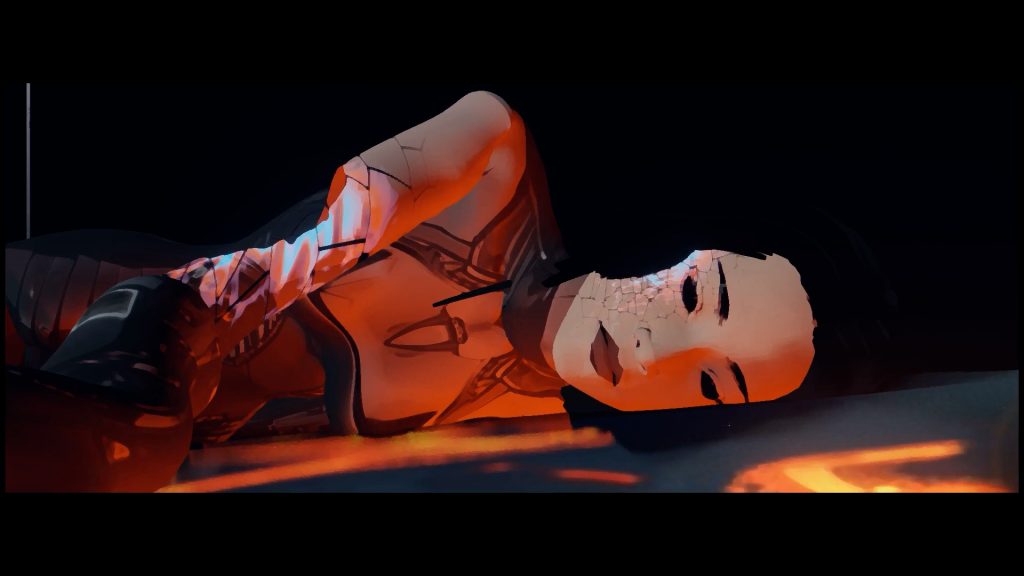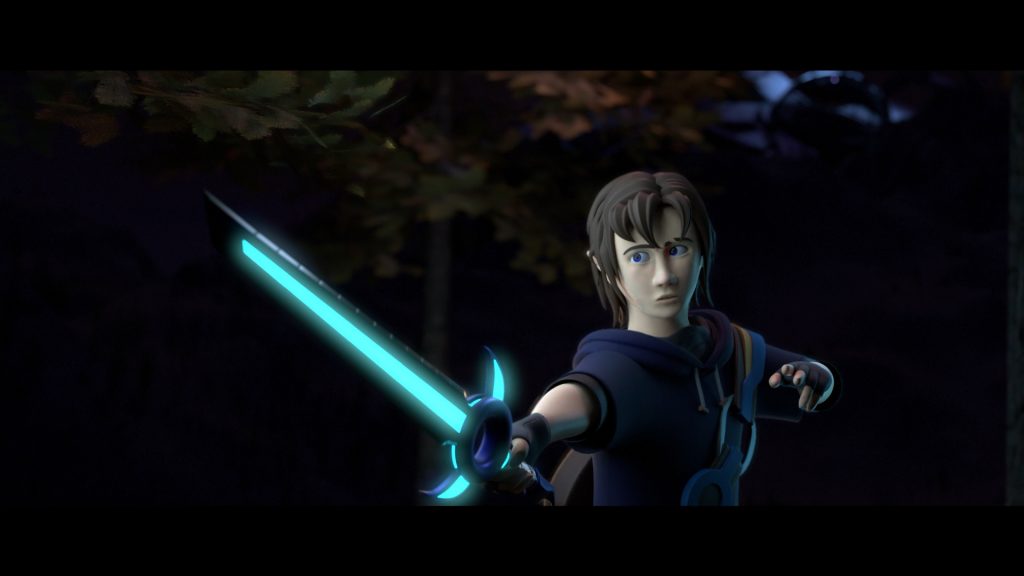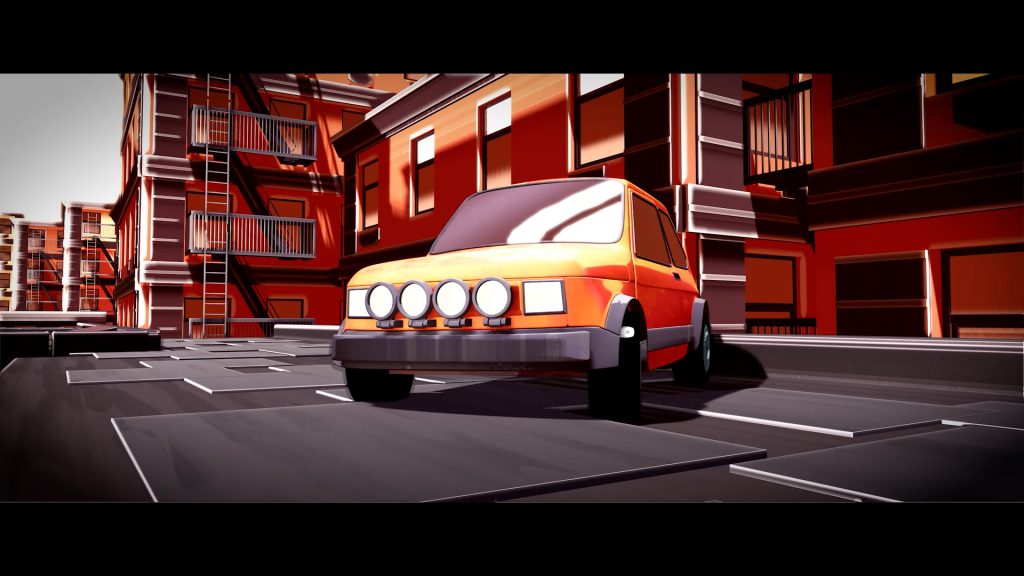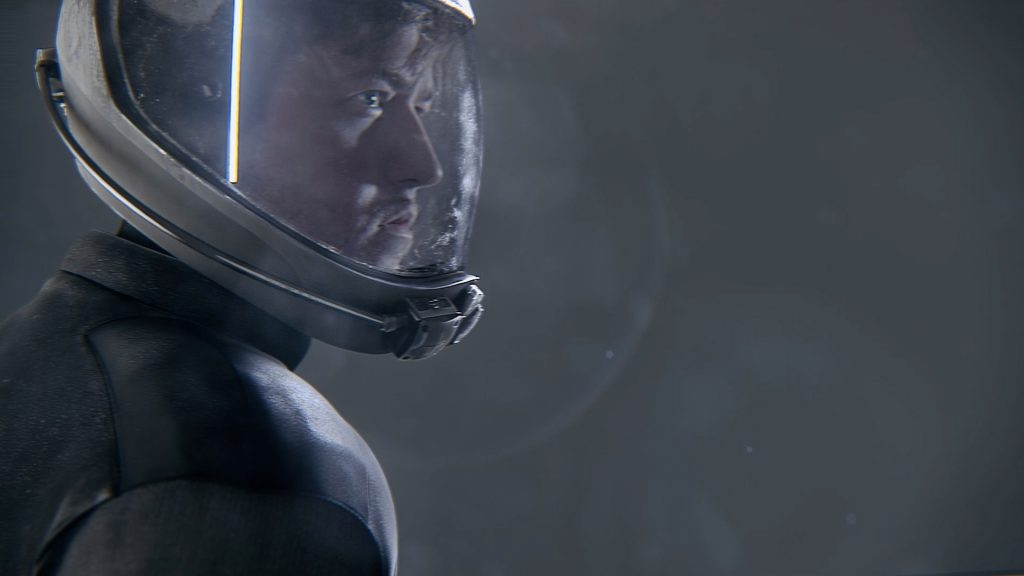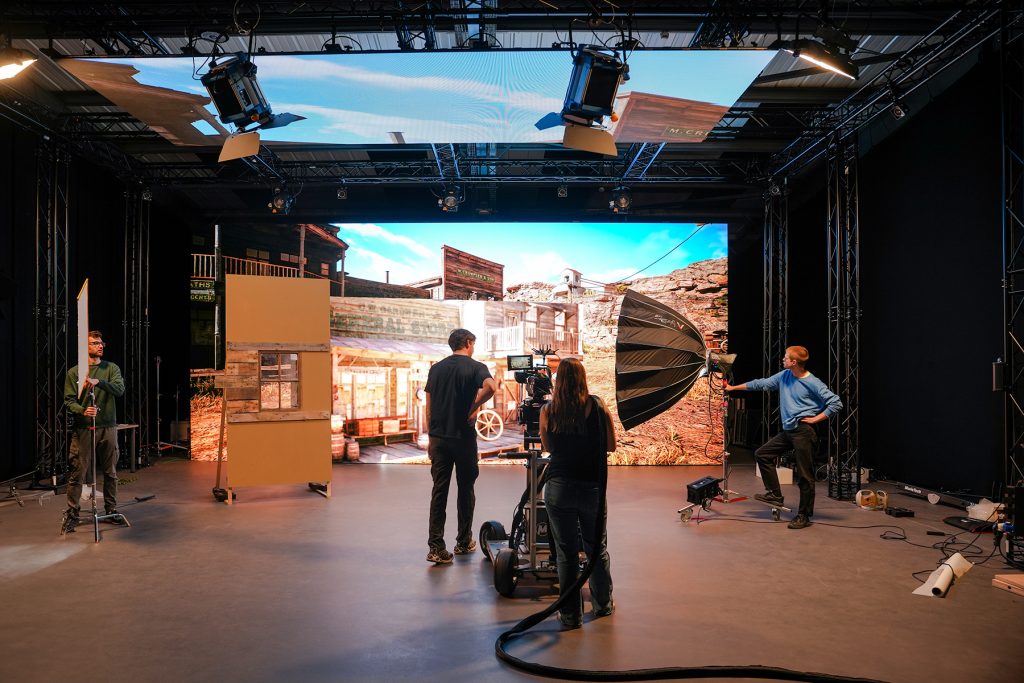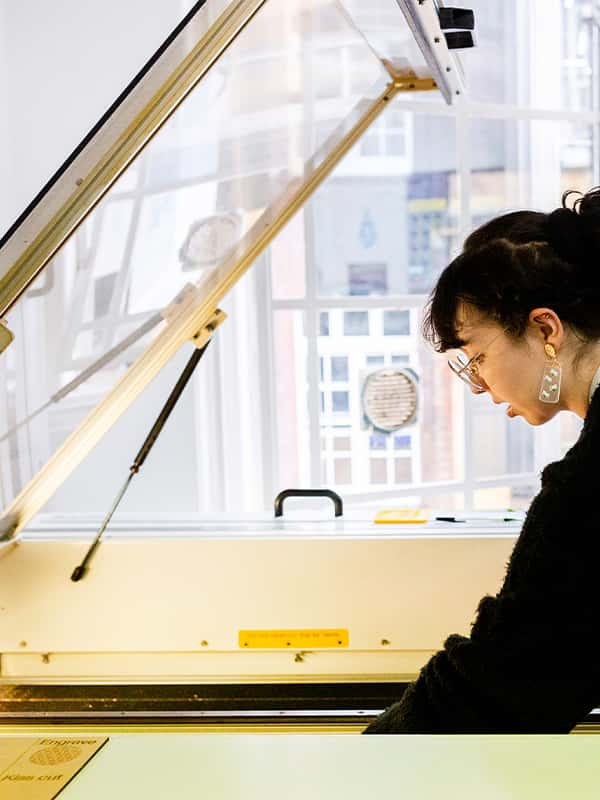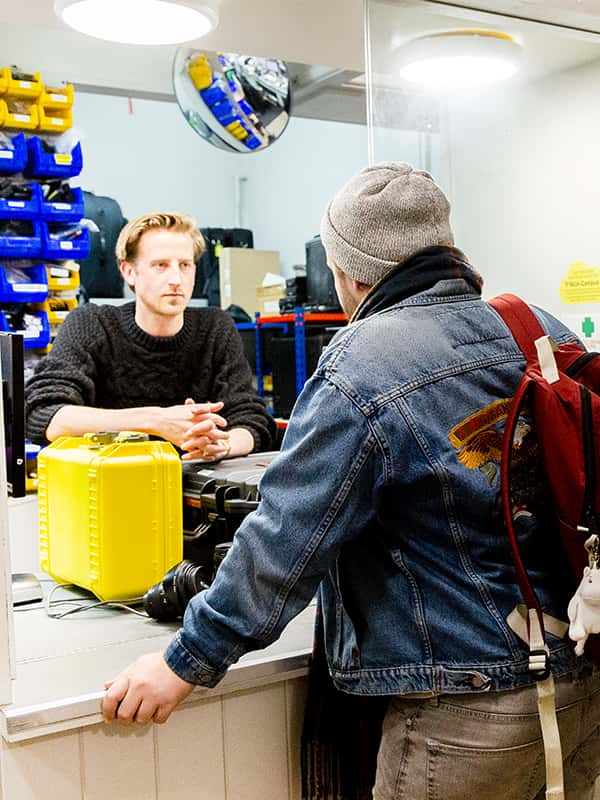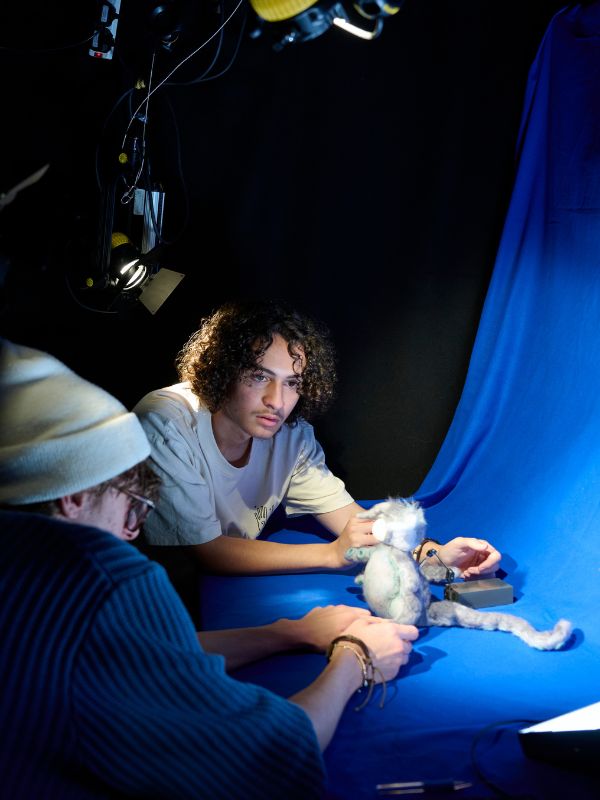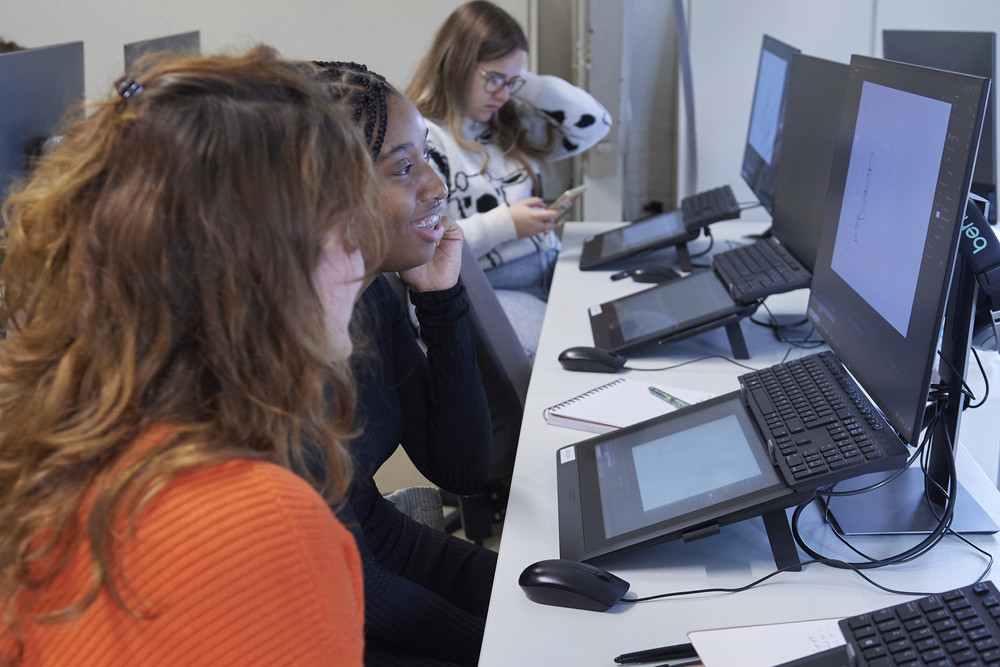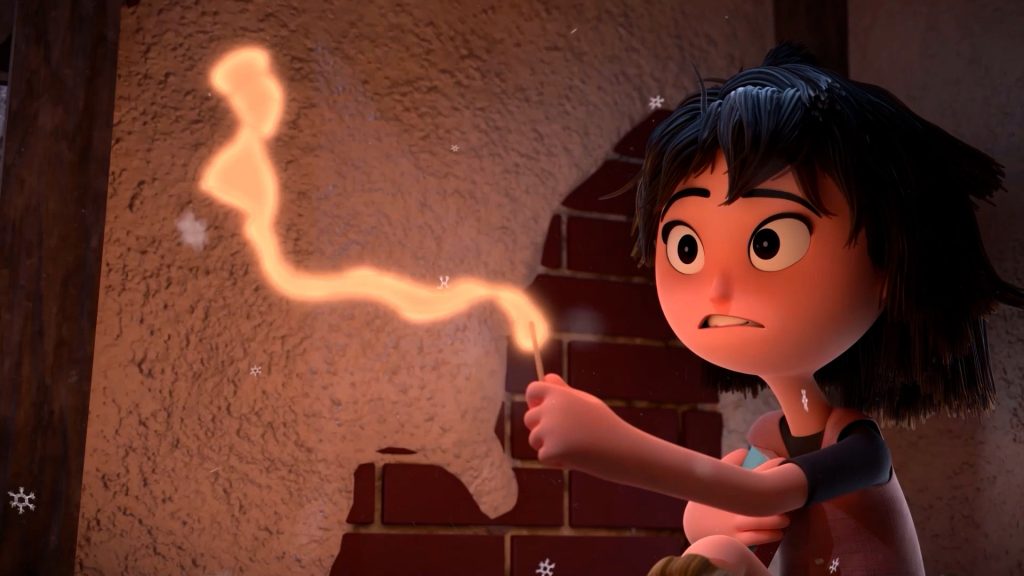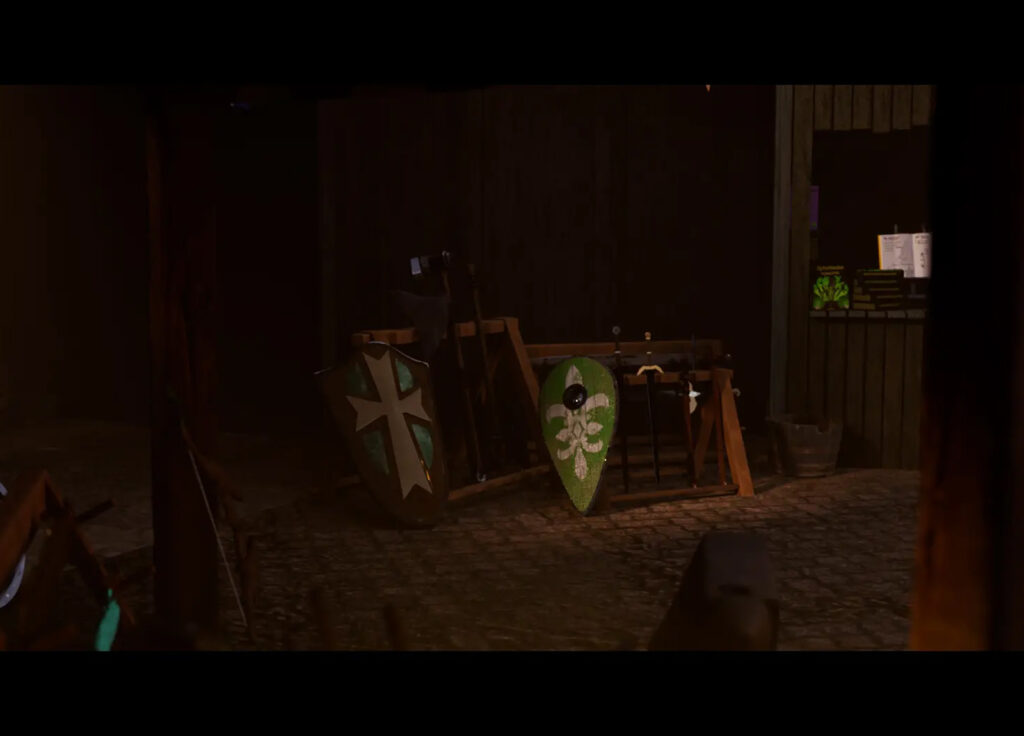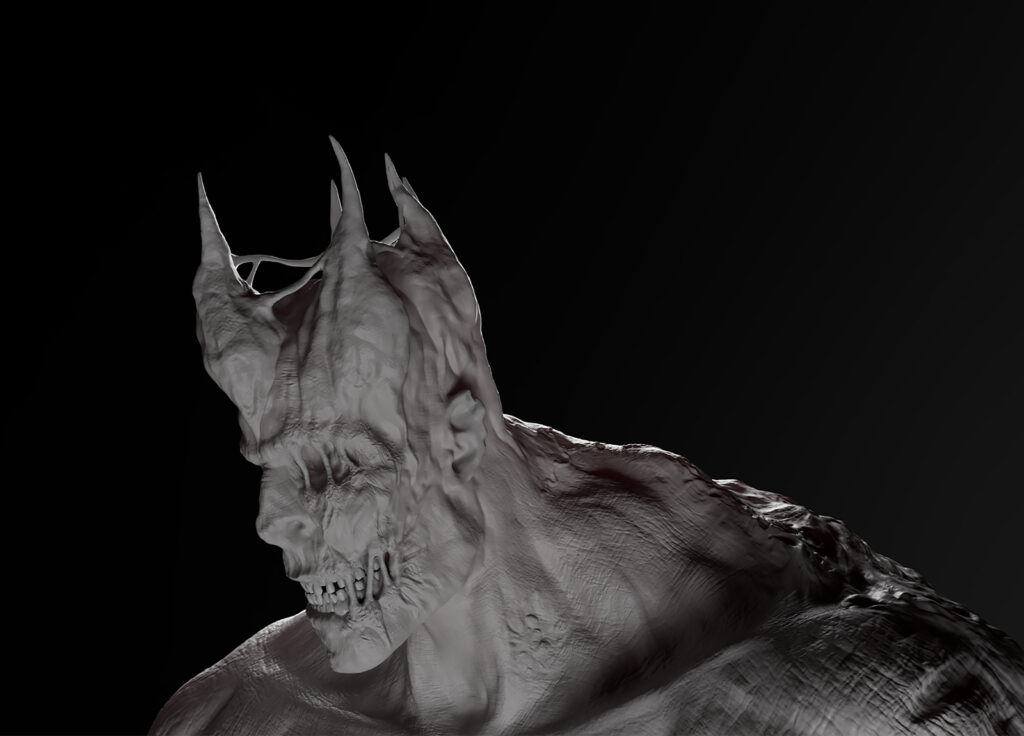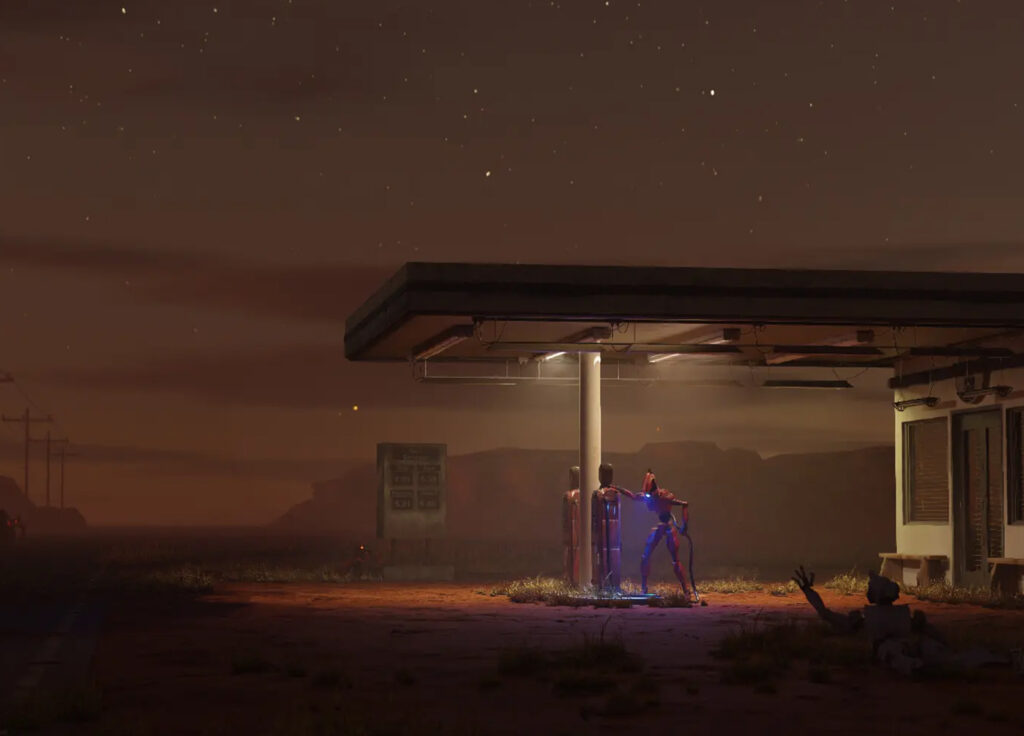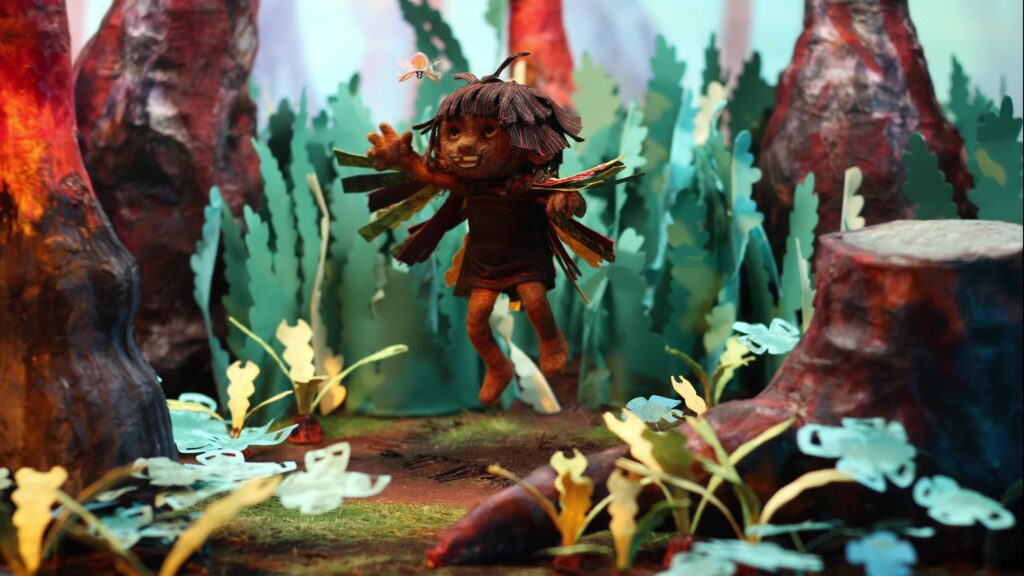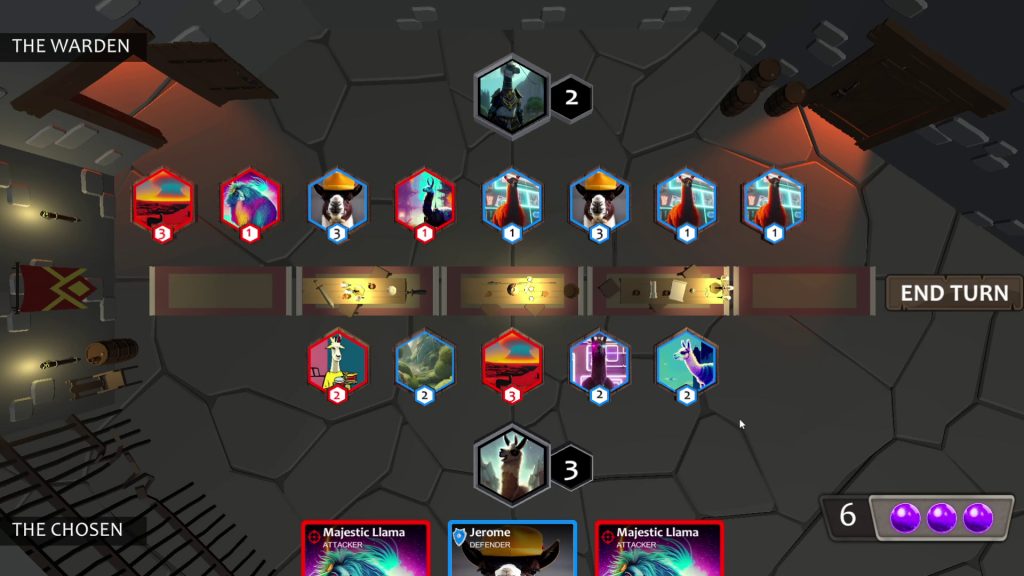

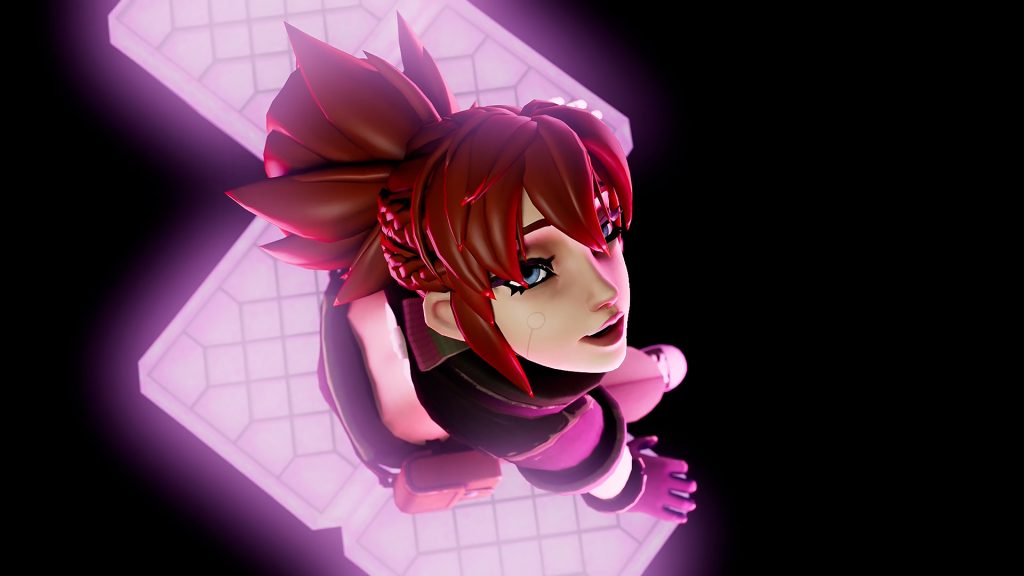
Animation and Visual Effects BA (Hons)
Develop the creative and technical skills behind the latest Hollywood blockbusters and learn from award-winning studio professionals.
-
Course Duration
3 or 4 Year options
-
Course Options
- Diploma Year
- Intergrated Foundation Year
-
Typical Offer
104-120 UCAS Tariff Points
- How to Apply Request a prospectus
-
Annual Fees
- Home (full-time) £9,790
- Overseas (full-time) £18,860
-
UCAS code
- W618 (3 Year), W617 (4 Year)
- Institution code: N39
-
Course Start
September 2026
BA (Hons) Animation and Visual Effects offers a perfect balance between mastering the fundamental principles of animation, visual effects, and breakthrough techniques. As you become an expert ‘world builder’, you’ll use visual effects to create character designs, enhance stories, work with directors or film your own shots, helping to develop a portfolio that could fast-track you into the animation or VFX industries.
Watch our BA Animation and Visual Effects showreel
Why study with us
-
Explore the major animation and visual effects techniques including digital 2D, 3D, and compositing to underpin your visual effects projects.
-
Develop an understanding of audience, context, film language, and the elements of compelling storytelling.
-
Learn about a range of processes such as look development, lighting, texturing, rendering, and compositing.
-
Attend masterclasses and guest lecturers from major studios and artists. Previous guests include studios behind Jurassic World, Star Wars, the Toy Story franchise, The Last of Us, Stranger Things, The Lion King, Avengers: Endgame, Ready Player One, Entergalactic, Prehistoric Planet, and Blade Runner 2049.
-
Learn in a collaborative studio-based environment.
-
Opportunities to engage with industry events such as FMX and the London VFX festival.
-
Access education versions of industry-standard software such as Autodesk, Maya, Houdini, Unreal, Adobe Substance Painter, and Nuke during your study.
-
Develop critical creative thinking skills through your course practice and expanded opportunist to engage with thought provoking lectures (VC talks), cross university activities (Interchange), and specialism linked essay tasks.
Course Details
Integrated Foundation Year (optional)
Integrated Foundation Year
Our Integrated Foundation Year is designed to equip students with the necessary skills, knowledge and confidence to thrive in their chosen degree subject. The course provides a comprehensive introduction to various disciplines, blending critical thinking and creative problem-solving with practical hands-on experience. This year serves as a bridge to undergraduate studies, allowing students to explore their interests within a supportive and inspiring environment, while familiarising themselves with the campus, workshops, and tutors.
Year 1
Core Units
Creative Learning (40 credits)
This unit will introduce you to the fundamentals that underpin all areas of animation and visual effects. You’ll work in 2D drawn animation, 3D computer animation, and visual effects. Through hands-on projects, you will cover a range of key production areas, including the principles of animation, ideation and concept development, drawing fundamentals and image manipulation. You’ll attend sessions on character design, film language and storytelling, the principles of animation, and an introduction to digital imaging and compositing software.
40 credits
Explore and Experiment (80 credits)
In this unit you will explore and experiment with techniques, materials and media. You’ll build your knowledge of the animation pipeline and explore underpinning skills in drawing, design and techniques of film language, narrative structures and visual storytelling. You’ll consider the practical, conceptual, and theoretical pathways open to you as an animator or VFX artist and learn to use industry-standard software to support all areas of your work.
You will bring animated characters and scenes to life, working from initial concept to final outcome, exploring skills in 2D, CG and stop motion character animation, CG modelling and digital compositing.
80 credits
Core Projects
Wayfinding Week
The first week of each academic year is called Wayfinding week. It’s an opportunity get your bearings, establish new connections and, after your first year at Norwich, re-establish old ones. Your course team will talk you through the year ahead and explain the expectations for the year. We’ll help you navigate new encounters and identify areas to focus on as you progress through your course.
Make it Manifest(o)
An important element of Wayfinding Week is taking part in our annual ‘Make it Manifest(o)’ project. Your course team will introduce the project in which we’ll ask you to consider your hopes and vision of the year ahead at Norwich and work with students in other year groups to bring your ideas to life. The project culminates in a celebratory display of work across the campus. The project will help you to develop your critical creativity through different approaches, concepts, and mediums. You’ll encounter diverse perspectives and build friendships and networks within our university community.
Interchange Week
Interchange weeks are opportunities to step away from your disciplinary studies and engage in projects, workshops, visits and talks that extend your knowledge and understanding of the world. Whether you learn a new skill or take part in a global challenge project with students from other courses, you will come away with new insights to take back to your course. Interchange is part of the schedule for all Norwich students with sessions held across and beyond the campus led by university staff, visiting lecturers and students.
Year 2
Core Units
Global Contexts (80 credits)
This unit will enable you to expand your specialist knowledge and skills, taking you to the next level in your creative development. This unit explores storytelling through a typical animation and VFX production workflow. There will be a focus on narrative elements to help construct a short piece or sequence. You’ll explore materials and processes, including 3D cinematography and lighting, pre-vis and rapid iteration, CGI compositing, and sustainable approaches in the industry. This unit aims to challenge students to develop problem-solving strategies resulting in believable and engaging outputs. You’ll also be encouraged to consider various contexts and audiences for your work, with sessions on industry pipelines, branding, and marketing strategies.
80 credits
Collaboration (40 credits)
This unit focuses on how you work with your peers and take ideas from concept to presentation through stages of an industry-styled production pipeline. This collaborative experience will expose you to a range of new processes and approaches that will develop your creative thinking. You’ll explore studio roles, teamwork dynamics, and the importance of working toward a common goal. You will build your knowledge through sessions on project planning, the responsibilities of different studio roles, conflict resolution, and creative decision-making. This is an opportunity to build a portfolio of work that reflects your interests and identify your long-term plans.
40 credits
Core Projects
Wayfinding Week
The first week of each academic year is called Wayfinding week. It’s an opportunity get your bearings, establish new connections and, after your first year at Norwich, re-establish old ones. Your course team will talk you through the year ahead and explain the expectations for the year. We’ll help you navigate new encounters and identify areas to focus on as you progress through your course.
Make it Manifest(o)
An important element of Wayfinding Week is taking part in our annual ‘Make it Manifest(o)’ project. Your course team will introduce the project in which we’ll ask you to consider your hopes and vision of the year ahead at Norwich and work with students in other year groups to bring your ideas to life. The project culminates in a celebratory display of work across the campus. The project will help you to develop your critical creativity through different approaches, concepts, and mediums. You’ll encounter diverse perspectives and build friendships and networks within our university community.
Interchange Week
Interchange weeks are opportunities to step away from your disciplinary studies and engage in projects, workshops, visits and talks that extend your knowledge and understanding of the world. Whether you learn a new skill or take part in a global challenge project with students from other courses, you will come away with new insights to take back to your course. Interchange is part of the schedule for all Norwich students with sessions held across and beyond the campus led by university staff, visiting lecturers and students.
Diploma Year (optional)
Level 5 Diploma (120 credits)
Students have the opportunity to spend a year after the second of their degree (or the third year if studying for a degree with an Integrated Foundation Year) enhancing their employability options through a Level 5 Diploma. They can choose from courses designed to provide:
- opportunities to gain industry insight, developing employability skills through a series of supported experiences, expanding professional networks and building confidence in the workplace, or
- an introduction to creative computing, building an understanding of how coding skills can be used to advance and complement creative practice.
Final Year
Core Units
Research and Preparation (40 credits)
This is the shorter of the two units that make up your final year of undergraduate study. Through taught sessions and independent experimentation, you will advance your skills and prepare for the creative and professional challenges of bringing a conceptual idea to life. Sessions focus on advancing your creative practice, including 3D animation and VFX skills covering simulations, lighting, compositing, performance animation, and narrative storytelling. You will produce a research report that expands on the research ideas you developed in your second year. You’ll apply various research methods and approaches, informed by your creative practice and future career aspirations.
40 credits
Resolution and Career Development (80 credits)
Your final unit allows you to research, conceptualise and create a self-determined final-year project(s), building on the skills, knowledge and understanding you have gathered throughout the programme. You’ll consider your creative route, receive expert guidance towards completing your chosen project(s), and have the opportunity to work collaboratively with other disciplines across the University. The project will allow you to demonstrate your acquired creative and technical knowledge in a meaningful self-determined outcome. You’ll consider your future goals and aspirations with a focus on building a unique industry-facing portfolio that reflects the skills you have to offer, setting you up for a successful career in the industry.
80 credits
Core Projects
Wayfinding Week
The first week of each academic year is called Wayfinding week. It’s an opportunity get your bearings, establish new connections and, after your first year at Norwich, re-establish old ones. Your course team will talk you through the year ahead and explain the expectations for the year. We’ll help you navigate new encounters and identify areas to focus on as you progress through your course.
Make it Manifest(o)
An important element of Wayfinding Week is taking part in our annual ‘Make it Manifest(o)’ project. Your course team will introduce the project in which we’ll ask you to consider your hopes and vision of the year ahead at Norwich and work with students in other year groups to bring your ideas to life. The project culminates in a celebratory display of work across the campus. The project will help you to develop your critical creativity through different approaches, concepts, and mediums. You’ll encounter diverse perspectives and build friendships and networks within our university community.
Interchange Week
Interchange weeks are opportunities to step away from your disciplinary studies and engage in projects, workshops, visits and talks that extend your knowledge and understanding of the world. Whether you learn a new skill or take part in a global challenge project with students from other courses, you will come away with new insights to take back to your course. Interchange is part of the schedule for all Norwich students with sessions held across and beyond the campus led by university staff, visiting lecturers and students.
Download course specifications
Learning and teaching
This course is taught through a mixture of learning and teaching methods including:
-
Group briefings
-
Academic tutorials
-
Group tutorials
-
Workshops
-
Critiques (crits)
-
Seminars
-
Lectures
Assessment
Assessment for this course is entirely coursework-based, meaning there are no exams. Your progress will be evaluated through the projects and assignments you complete for each unit. Throughout the year, you’ll receive ongoing feedback to help you refine your work and develop your skills. To support your learning and ensure you achieve the course outcomes, we use a variety of assessment methods, including:
- Finished pieces of work
- Presentations
- Written work
- Your research
- A reflective journal
Some of the people you’ll be working with
- Showing 1-8 of 10 results
-
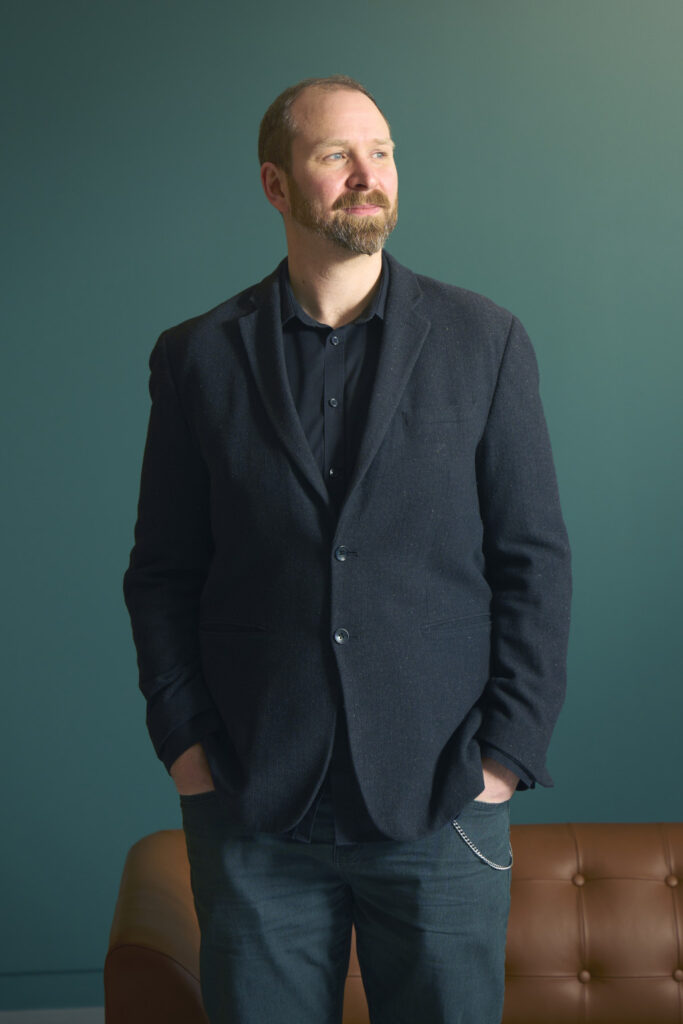
Mark Wickham
Director of Computer Arts and Technology
-
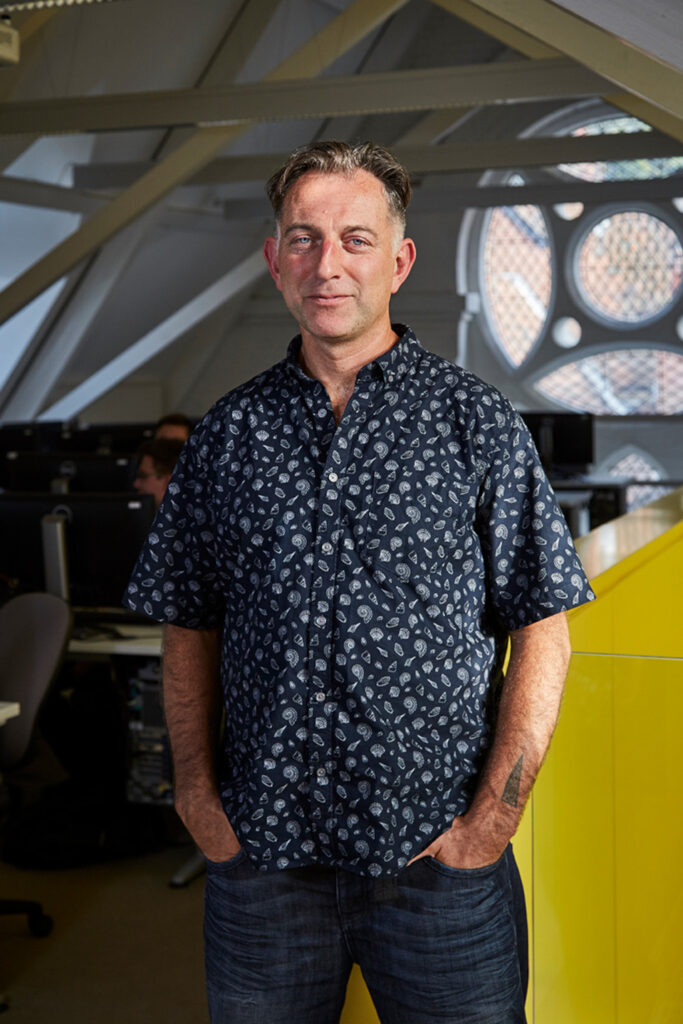
Jamie Gledhill
Course Leader, Creative Computing and Technology
-
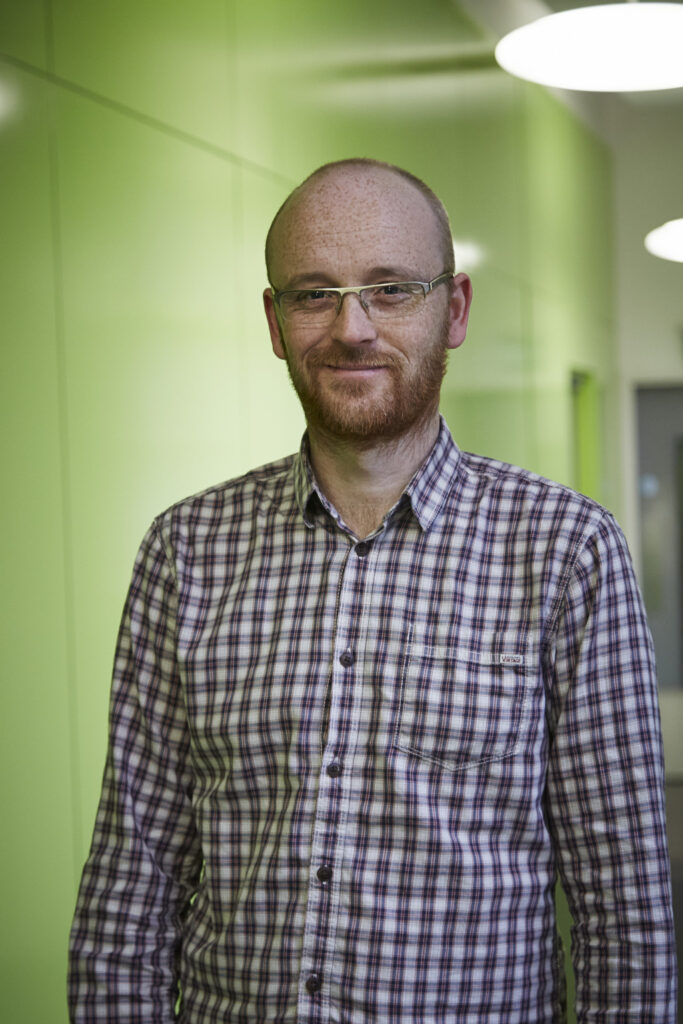
Jon Dunleavy
Course Leader, Animation
-
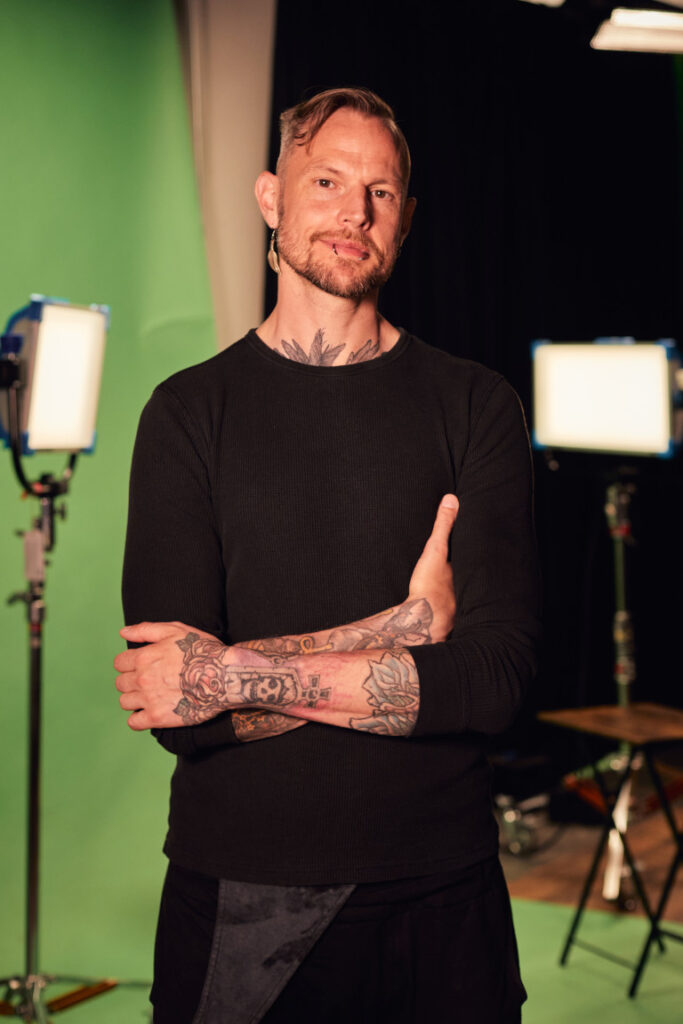
Robin Fuller
Senior Lecturer
-
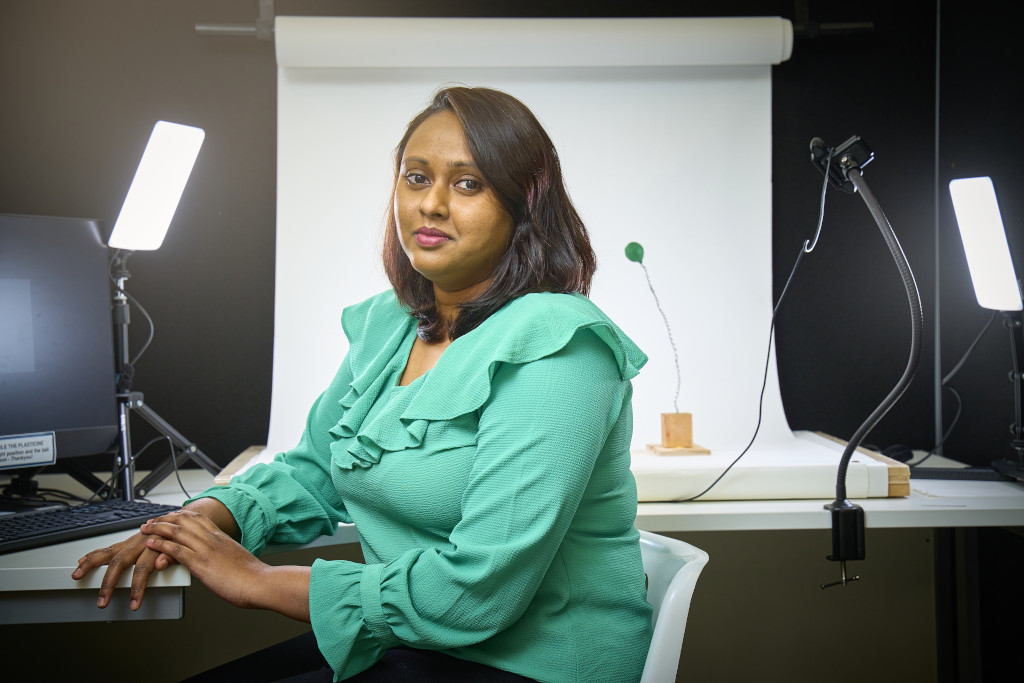
Anjana Rajapakshe
Lecturer
-
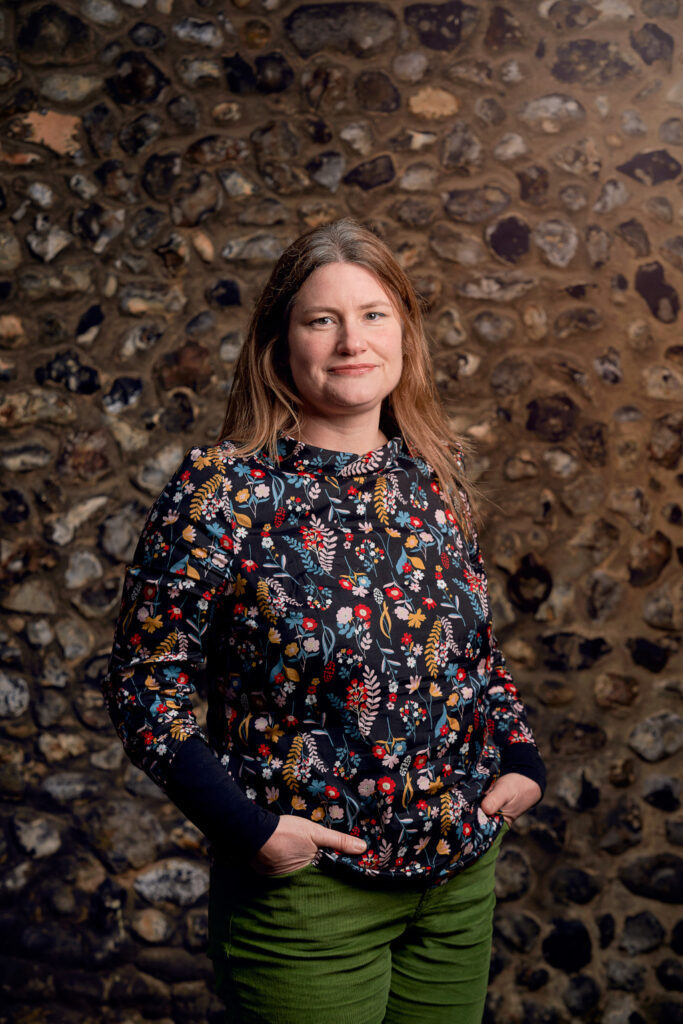
Dr Anna Blagrove
Lecturer
-
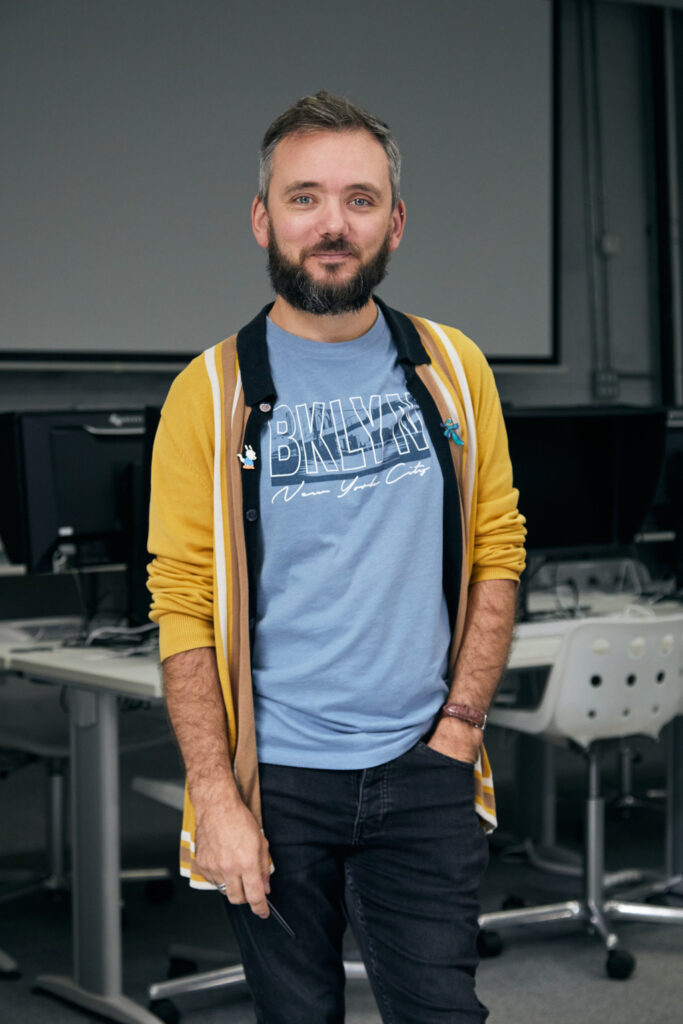
Dan Root
Lecturer
-
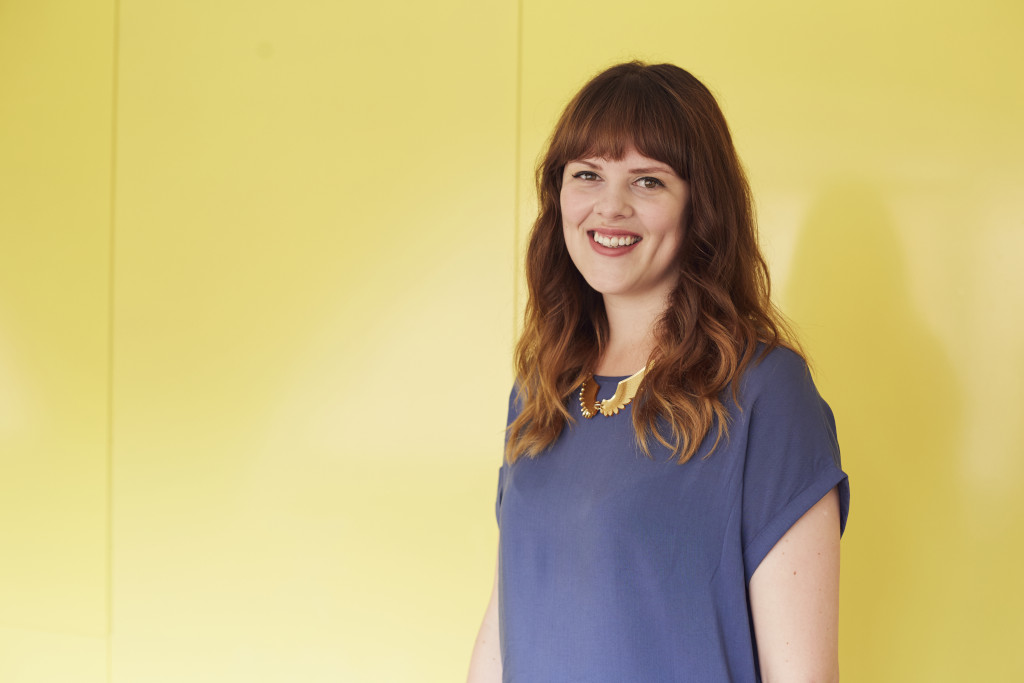
Helen Piercy
Lecturer
Our Facilities
Look around our city-centre campus, and you will find studios, media labs, and creative spaces in 13 buildings that sit among the cafés, bars, independent galleries and shops of Norwich’s cultural quarter.
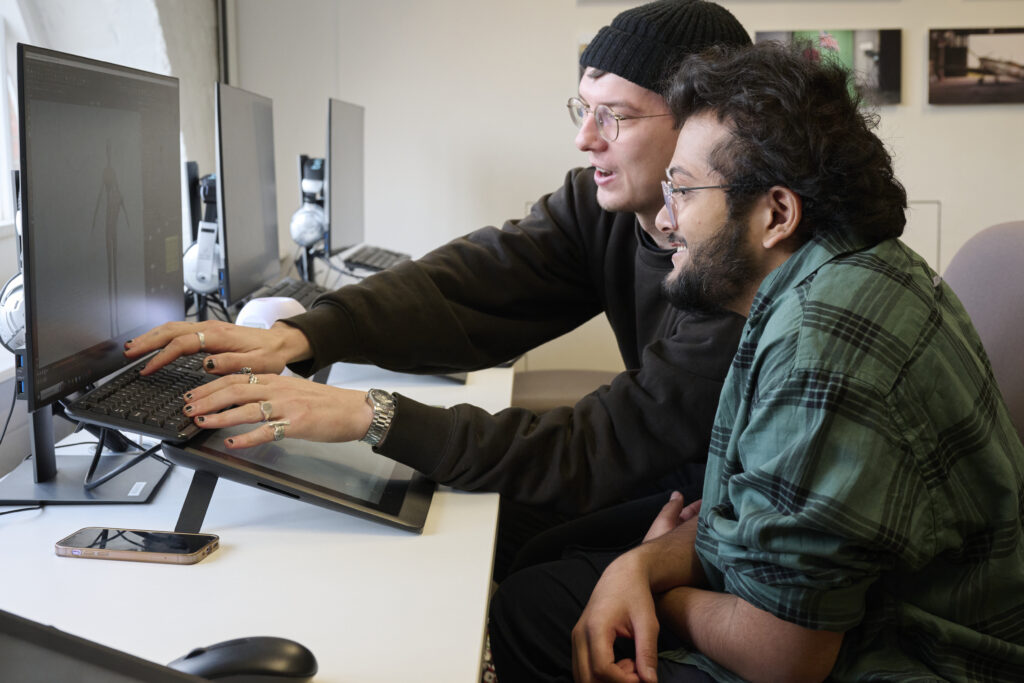
Typical career paths
By the end of your degree, you’ll have developed a professional portfolio of work and a plan to market yourself and show off your ‘creative edge’. Our graduates have gone on to work at ILM, DNeg, Framestore, The Mill, Electric Theatre Collective, Epic Games, Light VFX and Untold Studios, and have worked on films like John Wick: Chapter 4.
BA (Hons) Animation and Visual Effects is an active member of ACCESS: VFX, giving you access to top visual effects houses, animation and games studios, and its e-mentoring programme.
- Animator
- Texture Artist
- 3D Generalist
- 3D Environment Artist
- Roto Artist
- Match Move Artist
- Character Designer
- Producer
- Lighting artist
- Real-time artist
- Technical animator
- Compositor
- Matte Painter/Artist
- Modeller
- Architectural Visualiser
- Experiential Designer
“92% of our graduates are in employment or further education within six months of graduating”
Graduate Outcomes 2021
Entry requirements
Home
Norwich University of the Arts welcomes applicants of all ages from all backgrounds.
If the qualification that you are studying is not shown, do not worry as we are able to accept other pre-entry qualifications as well as combinations of different qualifications.
Please do contact our Student Recruitment Team if you have any queries.
A/AS Levels (GCE)
GCE A/AS Levels 3 A-level qualifications at grades BCC (104 UCAS Tariff points) or above. Where candidates are not taking 3 A-levels, Norwich University of the Arts will consider combinations of A-level/AS-level and other Level 3 qualifications.
BTEC Extended Diploma (QCF or RQF)
Distinction, Merit, Merit in an art, design or media related subject
BTEC Diploma (QCF or RQF)
Distinction*, Distinction* in an art, design or media related subject
T Levels
A T Level in any subject with overall grade A* to C (Pass)
UAL Extended Diploma
Merit
UAL Level 3 Foundation Diploma in Art and Design
Pass
UAL Level 4 Foundation Diploma in Art and Design
Pass
Foundation Diploma in Art and Design
Pass
Access to Higher Education Diploma (Art and Design)
Pass
International Baccalaureate Diploma
A minimum of 26 points
Integrated foundation year (optional)
Norwich University of the Arts welcomes applicants of all ages from all backgrounds.
If the qualification that you are studying is not shown, do not worry as we are able to accept other pre-entry qualifications as well as combinations of different qualifications.
Please do contact our Student Recruitment Team if you have any queries.
A/AS Levels (GCE)
GCE A/AS Levels 2 A-level qualifications at grades CC (64 UCAS Tariff points) or above.
BTEC Extended Diploma (QCF or RQF)
Merit, Merit, Pass in an art, design or media related subject
BTEC Diploma (QCF or RQF)
Distinction*, Merit in an art, design or media related subject
T Levels
Pass (D or E on the core)
UAL Extended Diploma
Pass
UAL Level 3 Foundation Diploma in Art and Design
Pass
UAL Level 4 Foundation Diploma in Art and Design
Pass
Foundation Diploma in Art and Design
Pass
International Baccalaureate Diploma
A minimum of 26 points
Overseas
We accept qualifications from all over the world.
To find our entry requirements from a specific country, please check our dedicated international pages.
English language qualifications
Most international students are required to hold an English language qualification. Applicants are required to have a minimum UKVI approved IELTS exam score of 6.0 overall, with a minimum of 5.5 in each section. Equivalent English language qualifications are acceptable such as, IB English language syllabus A or B/English Literature (Grade 4).
We also accept some alternative English qualifications. Learn more about our English entry requirements.
You can email us on international@norwichuni.ac.uk if you’d like to discuss your application individually.
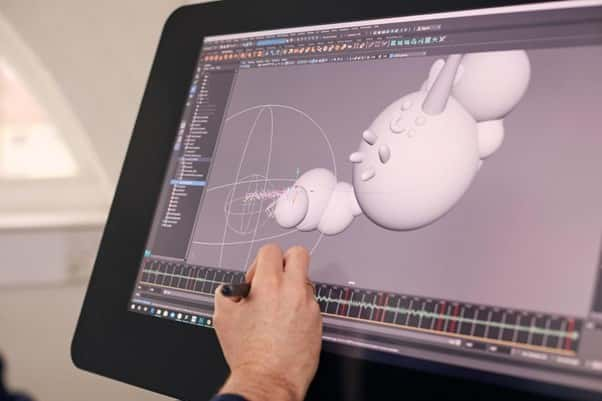
Fees and funding
Home
Tuition fees for the 2026/27 academic year
- BA course (three year): £9,790 per year
- Integrated Foundation Year (optional): £9,790 per year
- Level 5 Diploma Year (optional): £9,790 year
The level of fee that you will be asked to pay depends on whether you’re classed as a UK (home) or international student. Check your fee status.
Fees for subsequent years
Tuition fees may increase in subsequent years in line with inflation, subject to government regulations. The inflation rate used is expected to be the Retail Price Index excluding mortgage payments (RPIX). We would confirm this in advance to you of each academic year.
Find our more about fees and funding
Funding your study
Depending on your circumstances, you may qualify for a bursary, scholarship or loan to help fund your study and enhance your learning experience.
International
Tuition fees for the 2026/27 academic year
- BA course (three year): £18,860
- Integrated Foundation Year (optional): £18,860
- level 5 Diploma year (optional): £18,860
The level of fee that you will be asked to pay depends on whether you’re classed as a UK (home) or international student. Check your fee status.
Fees for subsequent years
For Overseas students starting in 2026 inflation will be applied to your fees in later years. We will confirm this in advance to you of each academic year, and we will limit the increase to no more than the Office for Students’ recommended inflationary measure.
Find our more about fees and funding
Funding your study
Please take a look at our International students page for information about fees, scholarships for international students, visas and much more.
Additional costs
Your course fees cover the cost of studies, and include loads of benefits, such as the use of our library, support from our expert employability team, access to workshops and free use of the IT equipment across our campuses. There are also other costs which you may need to consider.
How to apply
Home
All applications for undergraduate courses will need to be made via the Universities and Colleges Admissions Service (UCAS).
You’ll need our university UCAS code (N39) as well as your course code which you’ll find on your course page.
When you register with UCAS you will need include your previous and current qualifications information, personal statement, and reference.
Once we receive your application form through UCAS, we will email confirmation that we have received it and will give you access and instructions for logging into the applicant portal. Our decision will be communicated via UCAS.
Applying for an undergraduate degreeInternational
Full-time Undergraduate International applicants can either apply via UCAS or directly by completing the online application form below or emailing the downloadable form to ioadmissions@norwichuni.ac.uk
Online Application Form (opens in a new window)For further support for international applicants applying for an undergraduate degree view our international pages.
-
1 / 1
Alexis Diestro
Animation and Visual Effects BA (Hons)
1 / 1Daniel Copeman, Diego Lamattina, Kushal Modi
Animation and Visual Effects BA (Hons)
1 / 1Jerome Phillips
Animation and Visual Effects BA (Hons)
1 / 2Harry Fennell
Animation and Visual Effects BA (Hons)
1 / 1Luka Davlianidze
Animation and Visual Effects BA (Hons)
1 / 1Luke Abraham
Animation and Visual Effects BA (Hons)
1 / 1Rosario Perrone
Animation and Visual Effects BA (Hons)
1 / 1Jack Gill-Taylor
Animation and Visual Effects BA (Hons)
1 / 1Claudia Bileri
Animation and Visual Effects BA (Hons)
1 / 1Rachel Duffy
Animation and Visual Effects BA (Hons)
1 / 1Jordan De Bondt
Animation and Visual Effects BA (Hons)
1 / 1Jennie Corke
Animation and Visual Effects BA (Hons)
1 / 1Imogen Burton
Animation and Visual Effects BA (Hons)
1 / 1Harry Hughes
Animation and Visual Effects BA (Hons)

Latest news
-
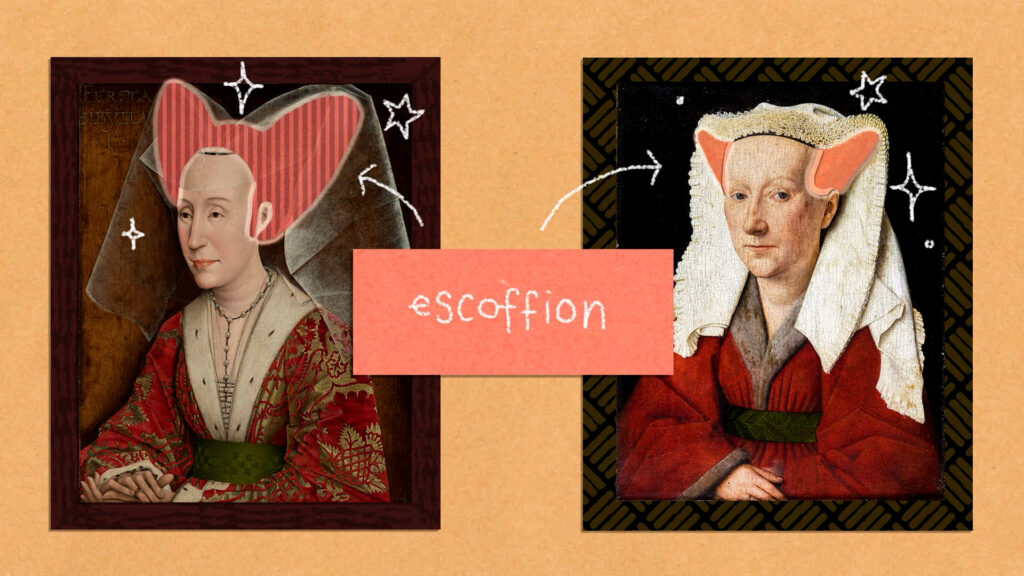 Institution •
Institution •Director of Research Development collaborates with TED-Ed on new animation
Professor Alison Goodrum worked with the TED-Ed team to develop the short film which explores the history of hats. -
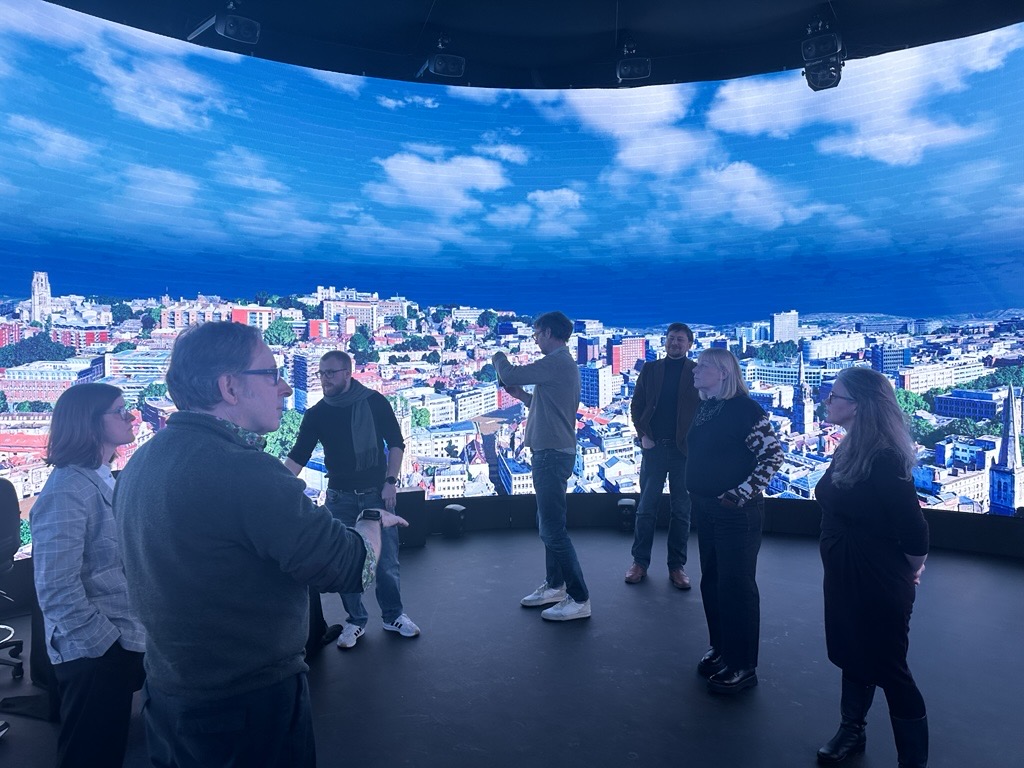 Institution •
Institution •Norwich University of the Arts showcases institutional and research achievements to Research England
The University was delighted to welcome representatives from Research England, to share key institutional and research developments. -
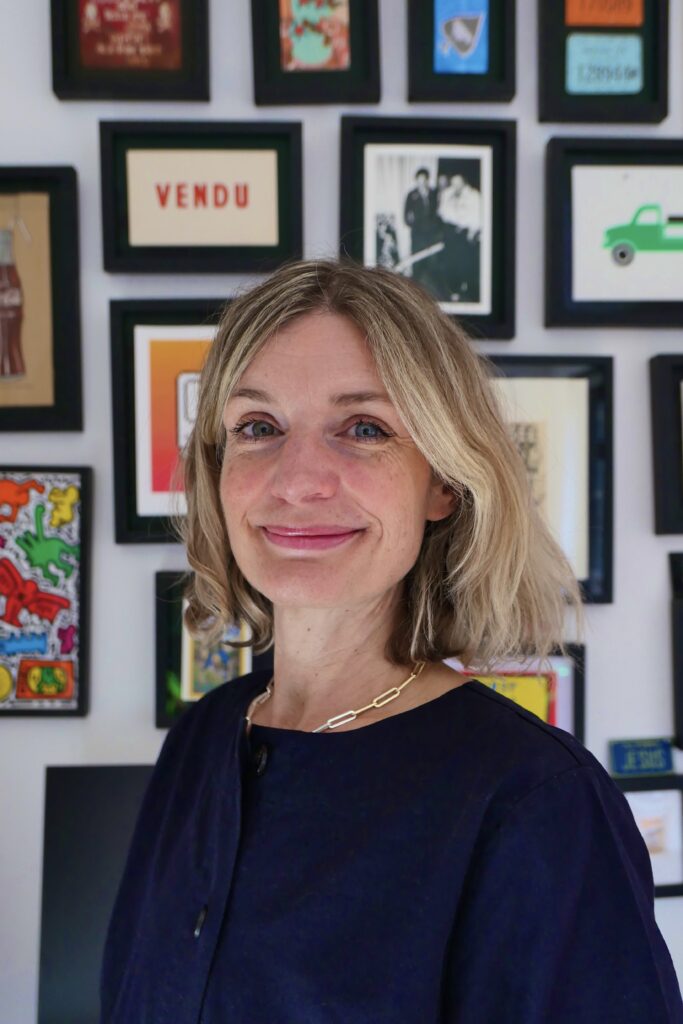 Institution •
Institution •Norwich appoints new Deputy Vice-Chancellor
Norwich University of the Arts is pleased to announce the appointment of Rebecca Wright as its new Deputy Vice-Chancellor. -
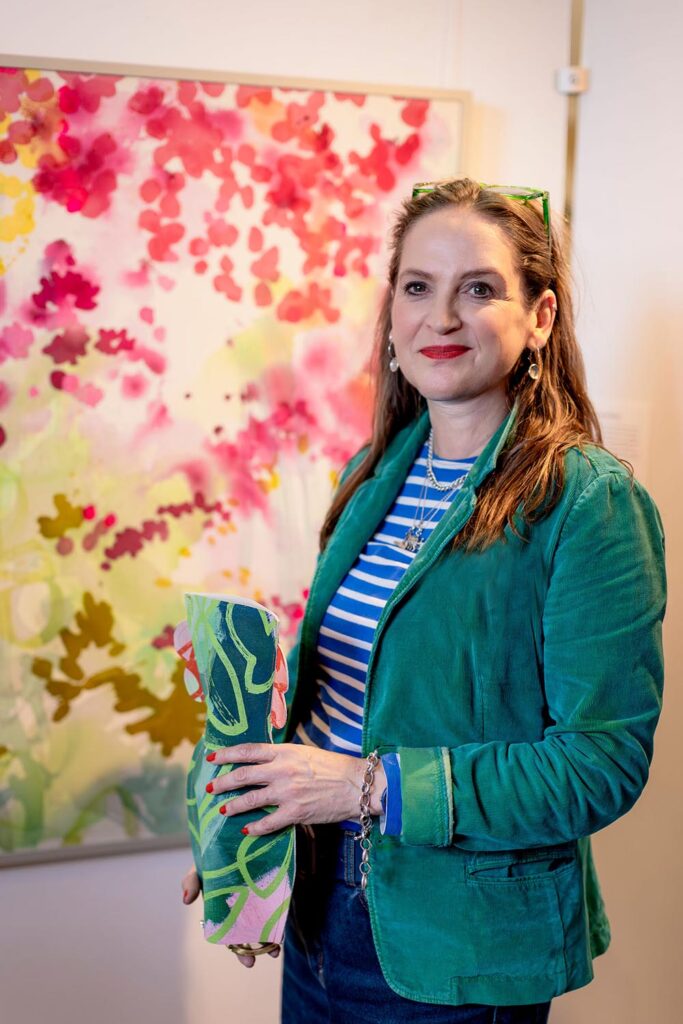 BA Textile Design •
BA Textile Design •In conversation with: Lucy Perry, MA Textile Design
Lucy shares her experience of creating a 360° digital installation, in a collaborative exploration of nature and technology. -
 Institution •
Institution •Norwich University of the Arts earns prestigious 5-star QS Star Excellence rating fo Teaching
Norwich University of the Arts has been awarded an overall four-star rating in the prestigious QS Stars University Ratings, marking a significant milestone in the University’s first-ever submission to the internationally recognised assessment framework. -
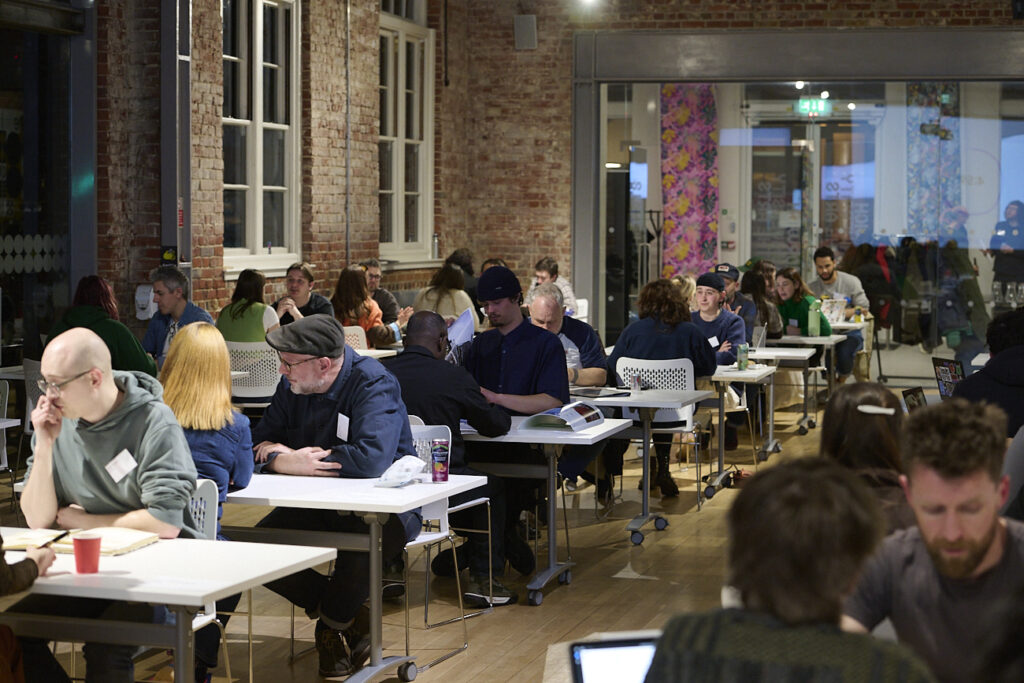 Employability •
Employability •Norwich University of the Arts celebrates 10 years of the Big Book Crit
Hundreds of Norwich students have shared their work with leading creative professionals over the last decade. -
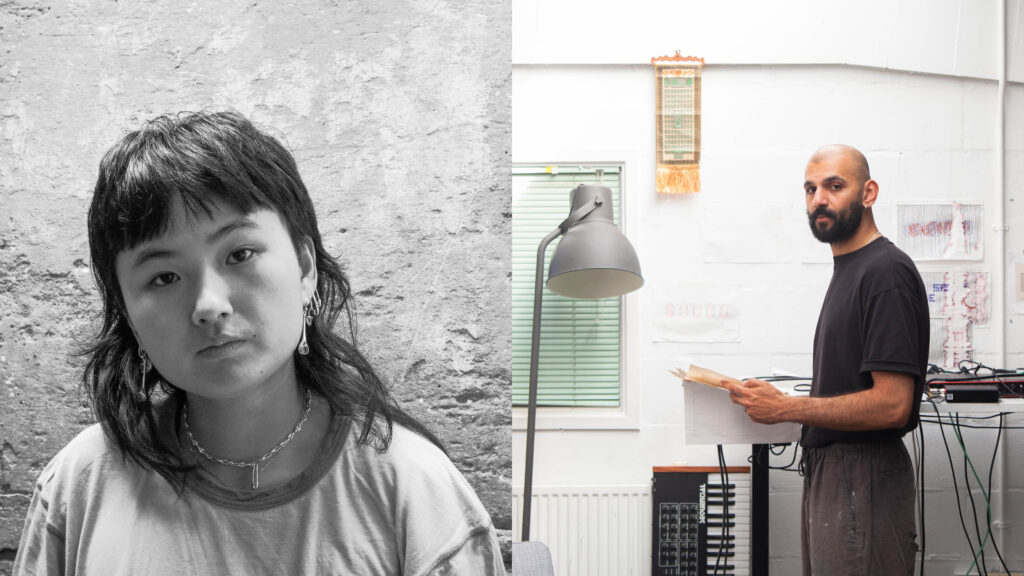 East Gallery •
East Gallery •Announcing the East Gallery Fellows 2025-2026
Norwich University of the Arts is pleased to announce the selected awardees of this year's East Gallery Fellowship. -
 BA Business Management •
BA Business Management •Dean of Creative Education Awarded Prestigious Principal Fellowship from Advance HE
The University is delighted to announce that Hilary Carlisle, Dean of Creative Education and Professor of Design, has been awarded Principal Fellowship of the Higher Education Academy (PFHEA) by Advance HE -
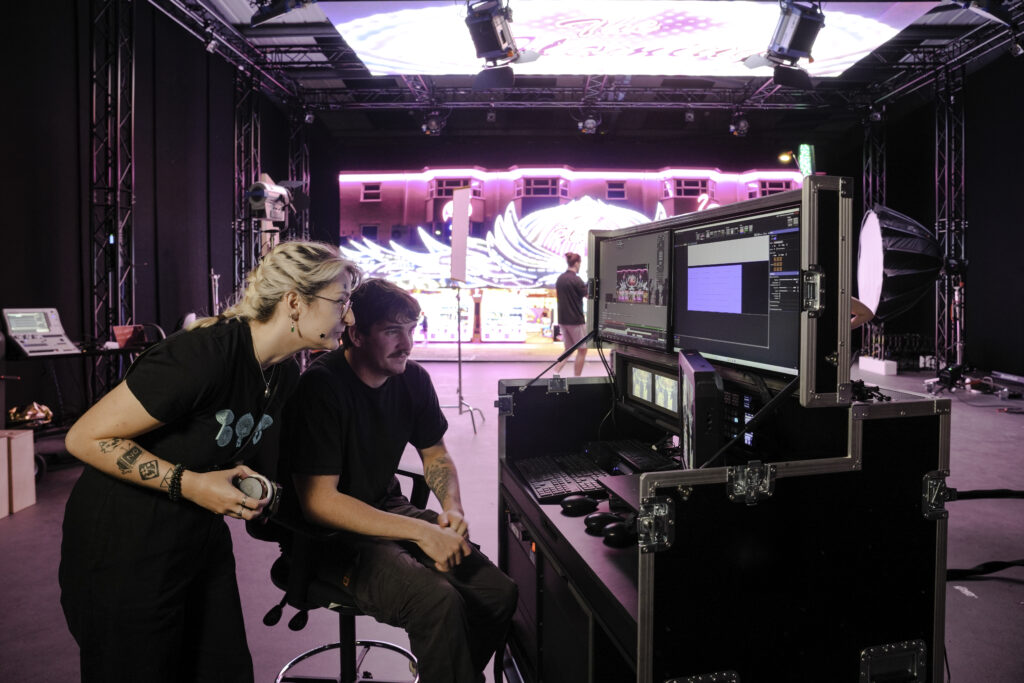 BA Degree •
BA Degree •Norwich University of the Arts to Host ELIA Academy 2027
Norwich University of the Arts is delighted to announce that it has been selected as the host institution for the ELIA Academy 2027. -
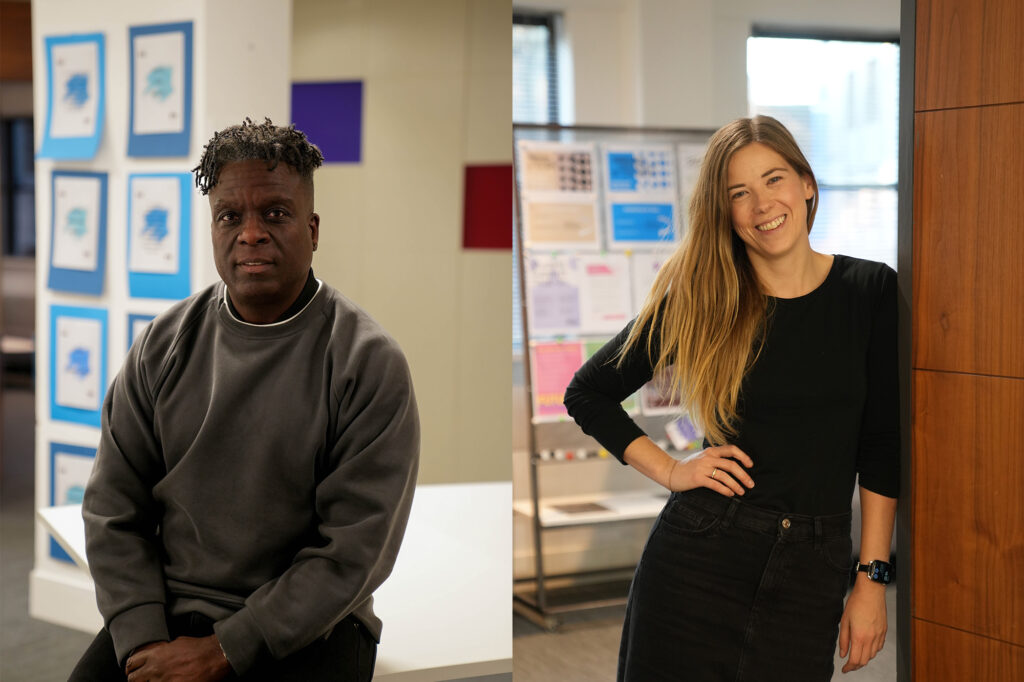 BA Business Management •
BA Business Management •In conversation with Norwich’s newest lecturers in Marketing and Business Management
We joined Norwich's newest lecturers, Stephen Balmer-Walters and Laurie McAllister, to find out more about the University's Marketing and Business Management courses. -
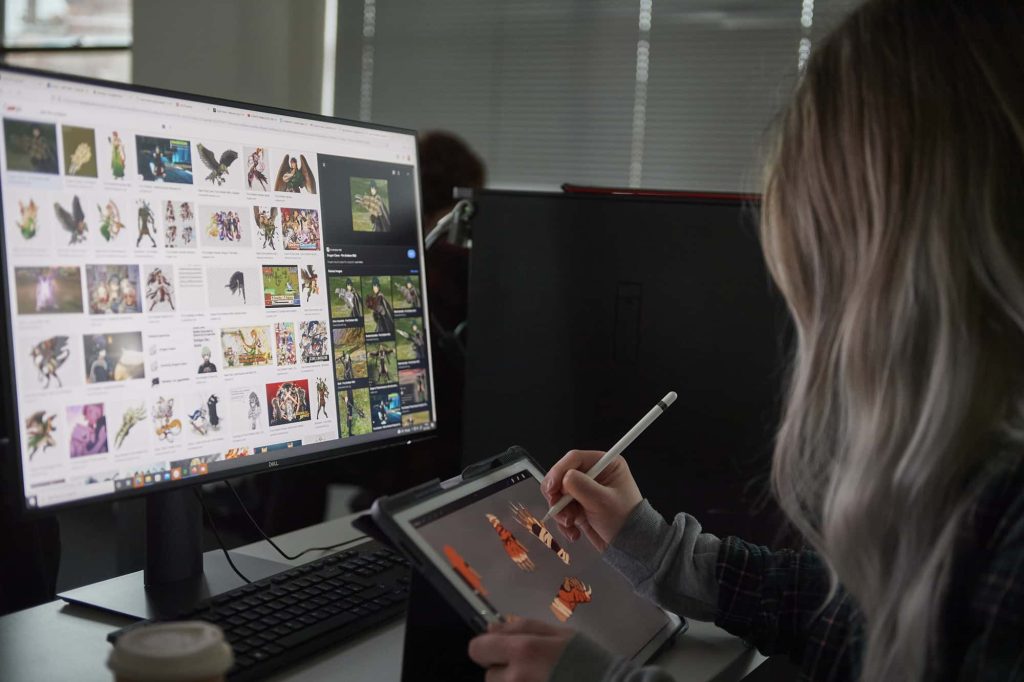 BA Games Art and Design •
BA Games Art and Design •East of England set to become UK’s next Games Cluster, says landmark report
A major new report is calling for the creation of a Games Cluster for the East of England — positioning the region as a national leader in creative technology and immersive media. -
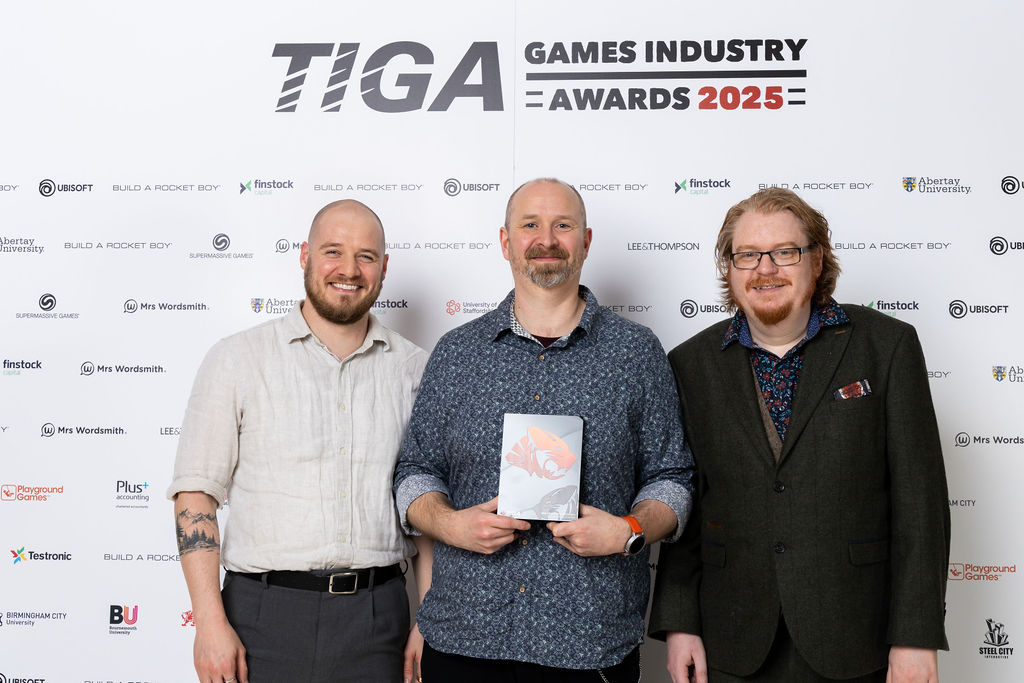 BA Games Art and Design •
BA Games Art and Design •Norwich awarded Best Education Initiative at the TIGA UK Games Industry Awards
TIGA, who represent the UK video games industry, have recognised the University’s commitment to graduate success and industry-focused learning in their 2025 awards. -
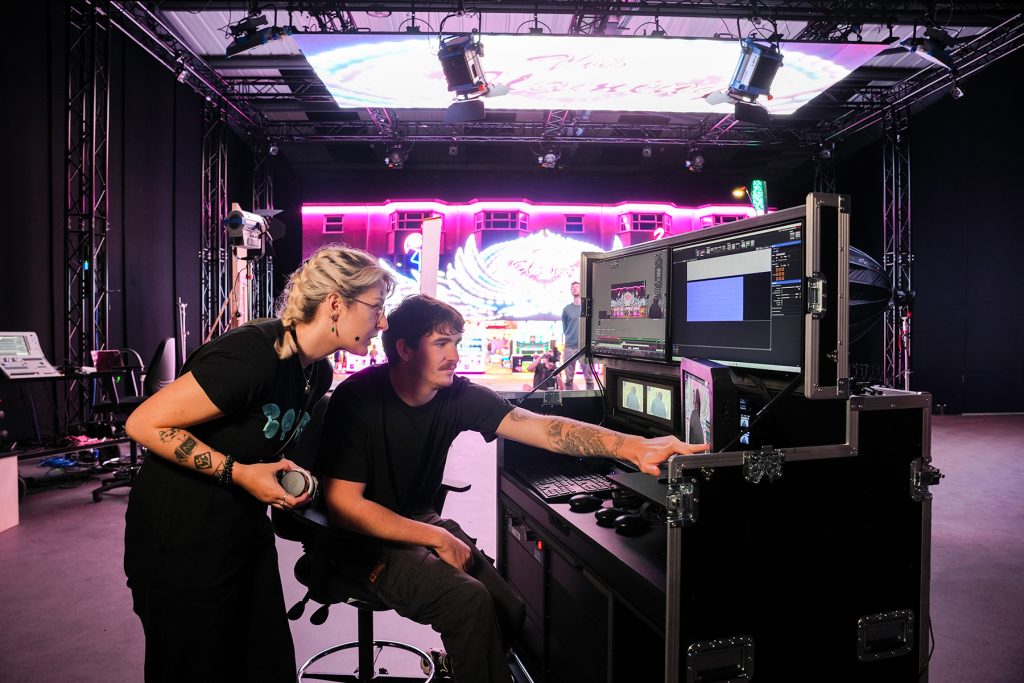 BA Animation •
BA Animation •Cutting edge Sony Virtual Production Studio puts Norwich on the map for the future of film and gaming
Norwich University of the Arts and Sony open new landmark facility for students, creators and the community. -
 BA Animation •
BA Animation •Norwich named top UK university for production excellence in visual effects
The University has been placed in three categories in the 2025 Rookies Global School Rankings, including the top five for Production Excellence – Visual Effects. -
 BA Photography •
BA Photography •Entries open for Norwich's 2026 Beyond the Frame photography competition
Entries are now open for our annual photography competition, open to students aged 11 to 19 around the world. -
 BSc Degree •
BSc Degree •Norwich University welcomes new academics to its Psychology and Computer Science courses
Lyndsey Wallace joins the University as Senior Lecturer for BSc (Hons) Psychology, with Jawwad Chattha joining as Course Leader for BSc (Hons) Computer Science.
1 / 1Related courses
Discover our courses and take the first step towards unleashing your potential
-
Visit the Film and Moving Image Production BA (Hons) course page

- Filter courses by study level: Undergraduate
- Filter courses by duration: Full time
- Filter courses by start month: September
- Filter courses by subject: Film and Moving Image Production
Film and Moving Image Production BA (Hons)
Unleash your artistic vision by combining the art of creative storytelling with practical industry skills across various filmmaking mediums.
-
Visit the Games Art and Design BA (Hons) course page
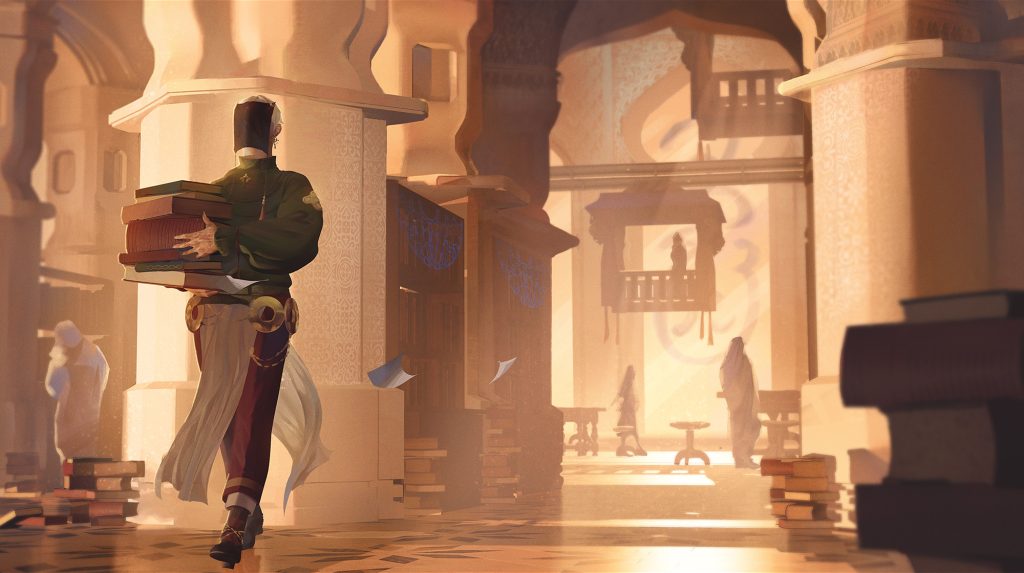
- Filter courses by study level: Undergraduate
- Filter courses by duration: Full time
- Filter courses by start month: September
- Filter courses by subject: Games Art and Design
Games Art and Design BA (Hons)
Explore and develop your skills of current game studio pipelines and be part of a collaborative, supportive department.
-

